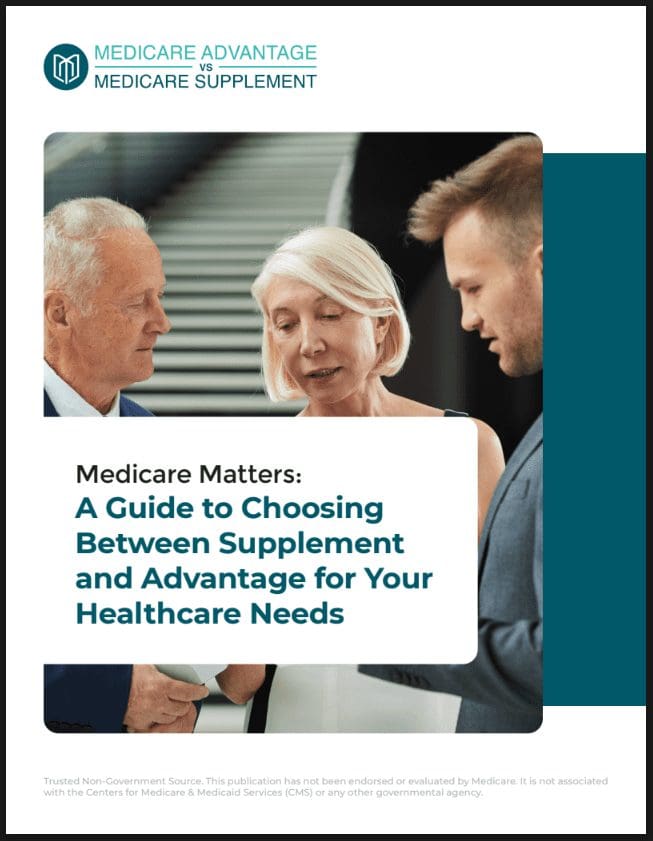Key Takeaways:
-
Medicare eligibility depends on age, work history, and certain health conditions. Understanding the qualifications ensures you enroll at the right time.
-
Planning ahead for Medicare can help you avoid penalties and gaps in healthcare coverage, making retirement transitions smoother.
-
If you’re still working at 65, your employer size determines whether you need to enroll in Medicare immediately.
-
Understanding different Medicare parts can help you choose the right coverage for your needs and budget.
-
Missing enrollment deadlines can result in costly penalties that last a lifetime.
Are You Eligible for Medicare? 4 Questions to Consider in Your Health Planning
Medicare is a cornerstone of healthcare for millions of Americans, but not everyone qualifies automatically. If you’re approaching retirement or dealing with certain health conditions, it’s important to understand the eligibility rules. Answering a few key questions can help you determine if you qualify for Medicare and when you should enroll. Let’s dive deep into everything you need to know to make the right decision about your Medicare coverage.
1. Are You 65 or Older?
Age is the most common way to qualify for Medicare. Once you turn 65, you’re eligible for Medicare Part A (hospital insurance) and Part B (medical insurance) if you’re a U.S. citizen or a legal resident who has lived in the country for at least five years.
When Can You Enroll?
You have a seven-month Initial Enrollment Period (IEP), which starts three months before your 65th birthday, includes your birth month, and extends three months after. Signing up during this time ensures your coverage begins without delays or penalties.
What If You Miss Your Initial Enrollment Period?
If you don’t sign up during your IEP and don’t have qualifying coverage, you may have to wait for the General Enrollment Period (January 1 – March 31) and could face late enrollment penalties. These penalties can increase your Medicare costs for the rest of your life, making it crucial to enroll on time.
2. Have You Worked at Least 10 Years in the U.S.?
Medicare eligibility is often linked to your work history, specifically whether you’ve paid Medicare taxes for at least 40 quarters (10 years). If you meet this requirement, you can qualify for premium-free Part A at age 65.
What If You Haven’t Worked for 10 Years?
If you haven’t worked enough, you may still qualify based on your spouse’s work history. If your spouse has worked at least 10 years and paid Medicare taxes, you may be eligible for premium-free Part A based on their record.
Can You Buy Into Medicare?
Yes! If you or your spouse haven’t met the work requirements, you can pay a monthly premium for Part A in 2025:
-
$518 per month if you’ve worked fewer than 30 quarters.
-
$284 per month if you’ve worked 30-39 quarters.
For Part B, all enrollees pay a monthly premium, which is $185 in 2025.
3. Do You Have a Qualifying Disability or Health Condition?
Medicare isn’t just for those 65 and older. You may also qualify if you have certain disabilities or medical conditions, even if you’re younger.
Disability Qualification
You can become eligible for Medicare before 65 if you have received Social Security Disability Insurance (SSDI) benefits for at least 24 months.
Medical Conditions That Qualify Immediately
Some conditions allow for automatic Medicare eligibility without waiting 24 months:
-
End-Stage Renal Disease (ESRD) – Requires dialysis or a kidney transplant.
-
Amyotrophic Lateral Sclerosis (ALS, or Lou Gehrig’s disease) – Immediate eligibility once SSDI benefits begin.
4. Are You Still Working and Covered by Employer Insurance?
If you’re still working at 65 and have employer-sponsored health insurance, you may not need to enroll in Medicare right away.
How Employer Size Affects Your Enrollment
-
If your employer has 20 or more employees, you can delay enrolling in Medicare Part B without penalty since your employer coverage is primary.
-
If your employer has fewer than 20 employees, Medicare becomes primary, meaning you should enroll in Part B to avoid coverage gaps and late penalties.
Special Enrollment Period (SEP)
If you delay Medicare due to employer coverage, you qualify for a Special Enrollment Period (SEP) to sign up for Part B within eight months of leaving your job or losing coverage, avoiding late penalties.
What to Do If You Qualify for Medicare
If you’ve determined you’re eligible, your next steps depend on your situation:
Enrolling in Medicare for the First Time
-
Sign up online through the Social Security Administration (SSA) website.
-
Call Social Security at 1-800-772-1213 to enroll.
-
Visit a local SSA office if you prefer in-person assistance.
Reviewing Coverage Options
Medicare includes multiple parts:
-
Part A (hospital insurance) covers inpatient stays, skilled nursing, and hospice care.
-
Part B (medical insurance) covers doctor visits, outpatient services, and preventive care.
-
Part D (prescription drug coverage) helps with medication costs.
-
Medicare Advantage (Part C) bundles Parts A and B, and often Part D, into one plan with additional benefits.
Each part has specific costs, including premiums, deductibles, and co-pays, so comparing your options is essential.
Avoiding Enrollment Penalties
Missing your Medicare deadlines can result in lifelong penalties:
-
Part B Late Enrollment Penalty: 10% increase in monthly premiums for every full 12-month period you delay without qualifying coverage.
-
Part D Late Enrollment Penalty: Added cost to your premium if you go 63+ days without creditable prescription drug coverage.
Making Smart Medicare Choices for the Future
Medicare planning isn’t just about qualifying—it’s about ensuring you have the right coverage at the right time. Here’s what you can do now:
-
Mark Your Enrollment Periods: Keep track of your Initial Enrollment Period, Special Enrollment Period, or General Enrollment Period to avoid late penalties.
-
Understand Costs: While Medicare covers many healthcare expenses, you may still have out-of-pocket costs like premiums, deductibles, and co-pays.
-
Compare Plans: Explore different Medicare options to find the best fit for your healthcare needs.
-
Get Expert Advice: Understanding all your Medicare choices can be complicated, but you don’t have to navigate it alone.
Get Help from a Licensed Medicare Agent
Medicare decisions can feel overwhelming, but expert guidance is available. To explore your options and ensure you make the right choice for your healthcare needs, connect with a licensed Medicare agent listed on this website today.










